

Dell APEX Cloud Platform for Microsoft Azure Serviceability
Tue, 26 Sep 2023 14:33:07 -0000
|Read Time: 0 minutes
Whenever an IT company presents a new product, it can be tempting to focus solely on the shiny side of the announcement. How fast are the new processors it incorporates? How much IO throughput can we attain, or how low can the storage latency be? We may be captivated by how easily the new product fits into a hybrid cloud operating model or how it slots perfectly into our multi-cloud strategy. We can focus on the improvements in operational efficiency, the cost savings it introduces, etc. The list is long and attractive, and these are important elements to what makes a new offering worth your time.
But there are a multitude of technologies and processes happening in the background to make these selling points a reality. To keep this new product running and true to the aforementioned benefits, we need to turn our focus to a whole different type of announcement.
Dell APEX Cloud Platform for Microsoft Azure is no different. A fully automated and integrated offering that extends and optimizes the Azure public cloud experience to on-premises IT environments, Dell APEX Cloud Platform for Microsoft Azure accelerates developer productivity, optimizes workload placement to meet application performance, and addresses governance requirements.
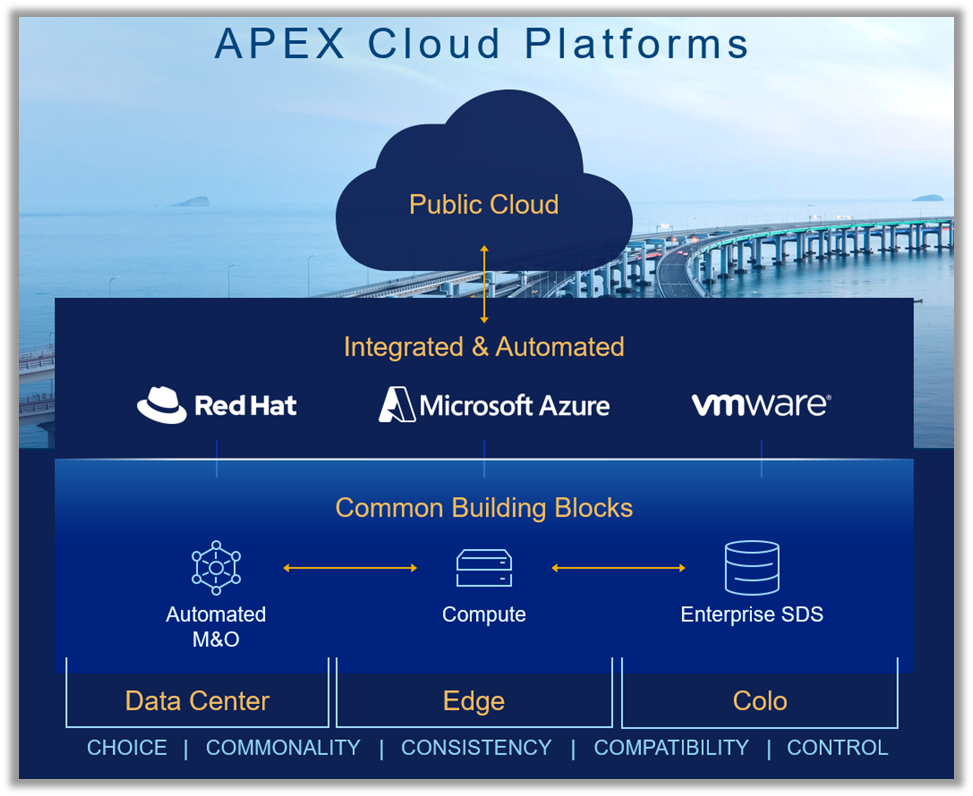 Figure 1. Dell APEX Cloud Platform for Microsoft Azure
Figure 1. Dell APEX Cloud Platform for Microsoft Azure
But what needs to happen in Dell APEX Cloud Platform for Microsoft Azure to make all these perks possible over time and through any and all vicissitudes?
It all comes down to serviceability. Dell APEX Cloud Platform Foundation Software integrates Dell Support and serviceability features/functionality into the APEX Cloud Platform extension in Microsoft Windows Admin Center.
For serviceability, we bundle a wide range of technologies and processes such as:
- Secure Connection for monitoring, providing remote support and handling hardware alerts
- Event Management and Call-Home
- Log bundle collection
- Check service feature
Dell APEX Cloud Platform Connectivity
Providing a secure connection gateway between customers’ facilities and Dell support sets up a trustable platform to send infrastructure, events, and call home, create service requests and deliver remote support for troubleshooting.
These connectivity features can be managed from the Dell APEX Cloud Platform Extension for Microsoft Windows Admin Center, as shown in the following figure.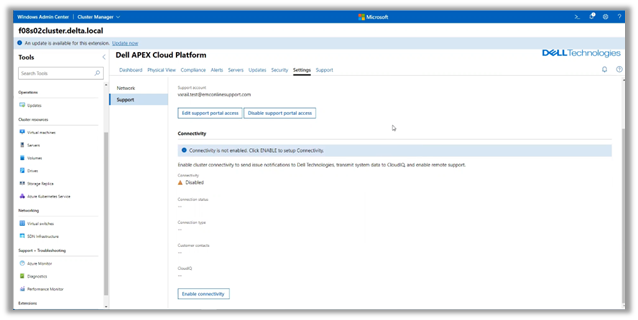 Figure 2. Connectivity can be enabled, disabled, and configured from Windows Admin Center
Figure 2. Connectivity can be enabled, disabled, and configured from Windows Admin Center
As mentioned previously, we can select the type of connectivity, either direct or through Dell Secure Connect Gateway, as shown in figure 3.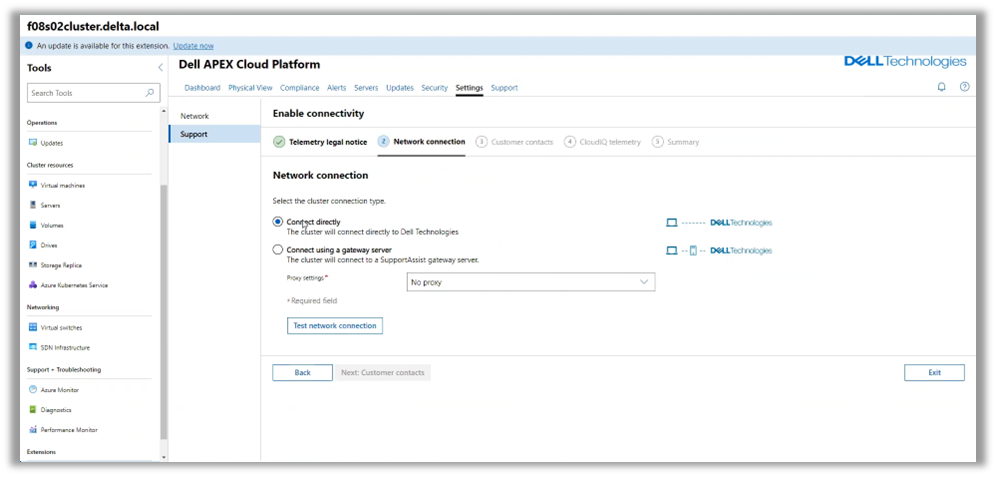 Figure 3. Selecting connectivity from the APEX Cloud Platform infrastructure to Dell support
Figure 3. Selecting connectivity from the APEX Cloud Platform infrastructure to Dell support
This connectivity, once established, enables you to create support cases and review KB articles from within the Dell APEX Cloud Platform for Microsoft Azure extension for Microsoft Windows Admin Center,
Event Management and Call Home
Dell APEX Cloud Platform for Microsoft Azure Event Management is built around an event processing service that:
- Collects events and transforms them into a common format
- Applies filters and other rules to reduce false alarms and unnecessary traffic
- Stores event history and distributes events to both Dell Call Home and Windows event viewer
In the following figure, we can see an event from the Windows Event Viewer. Dell APEX Cloud Platform for Microsoft Azure Events will appear under the section Hyper-V-Dell-APEX-HCP. In the description pane, we can analyze the event code, which includes event type, source, severity, component, and an index field. Other useful information includes:
- Event message and time of occurrence
- Information on the host, component, and sub-component that caused the event
- If there is any KB available related with the raised event
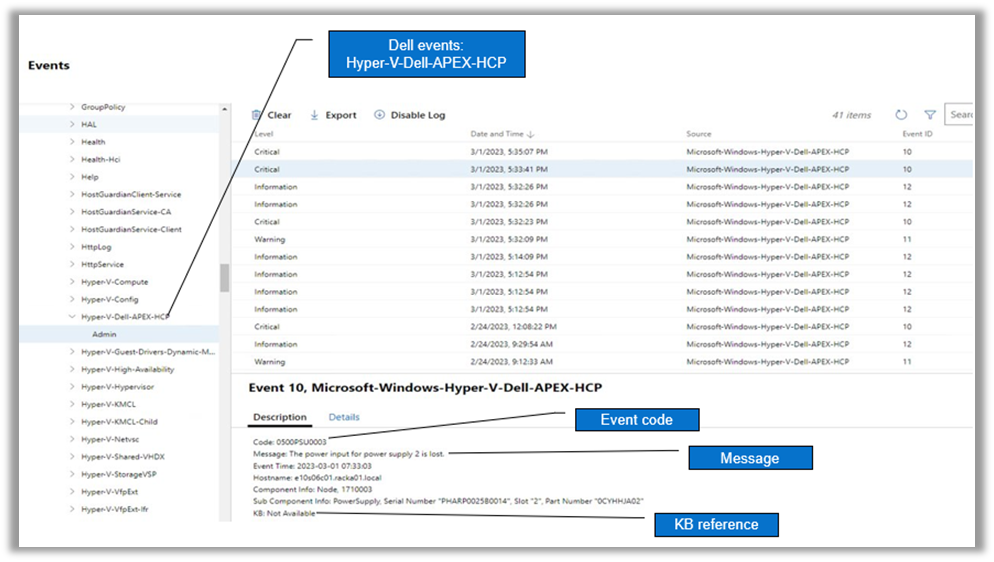 Figure 4. Dell APEX Cloud Platform for Microsoft Azure event, as seen from Windows Event Viewer
Figure 4. Dell APEX Cloud Platform for Microsoft Azure event, as seen from Windows Event Viewer
In the Dell APEX Cloud Platform Extension for Microsoft Windows Admin center, we have a dashboard dedicated to Alerts, as shown in figure 5.
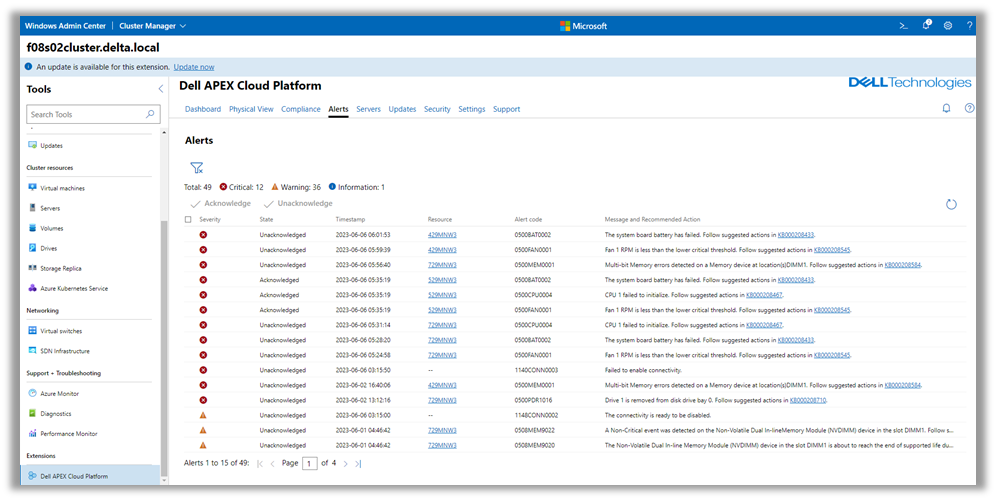 Figure 5. Alerts UI from the Dell APEX Cloud Platform Extension for Microsoft Windows Admin Center
Figure 5. Alerts UI from the Dell APEX Cloud Platform Extension for Microsoft Windows Admin Center
We can sort and categorize systems alerts by acknowledging them or not.
Establishing the connectivity with Dell support to configure Call Home will enable the automatic creation of Dell support cases based on these alerts.
Log Bundle collection
Dell APEX Cloud Platform for Microsoft Azure allows the user to collect log bundles coming from:
- Cloud Platform Manager
- Each node iDRAC
- Each cluster or node of the Azure Stack HCI platform
In the following example, we have elected to create log bundles from the three available sources.
We can select the nodes or cluster from which we want the logs to be created.
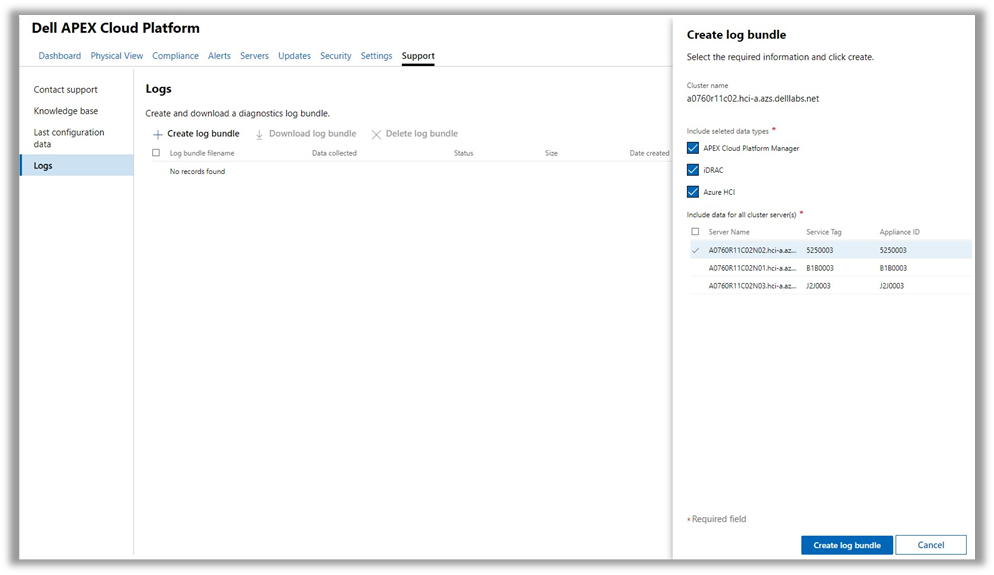 Figure 6. Dell APEX Cloud Platform for Microsoft Azure log bundle creation
Figure 6. Dell APEX Cloud Platform for Microsoft Azure log bundle creation
You can download the bundles and delete old and/or unneeded logs, shown in figure 7, leaving room for future ones.
 Figure 7. Dell APEX Cloud Platform for Microsoft Azure Log management
Figure 7. Dell APEX Cloud Platform for Microsoft Azure Log management
Check Service
Dell APEX Cloud Platform for Microsoft Azure includes a profile-based check service. Depending on the need--if we are running a compatibility check, a lifecycle management check, or a cluster validation check--we can create and use different profiles for those validations.
In the following table, we can see the type of checks supported in this version of Dell APEX Cloud Platform for Microsoft Azure.
| Scenario | Checker | Description |
|---|---|---|
Node Compatibility check | Hardware symmetry check | Check the hardware symmetry with primary node |
Hardware compatibility check | Check if hardware is supported under a specific version.
| |
Software compatibility check | Check if software is supported under a specific version. | |
Cluster validation | Host disk check | Check host disk. |
Secured core BIOS setting check | Check secured core BIOS setting. | |
Secured core OS feature check | Check secured core OS feature. | |
LCM precheck | Microsoft’s Enterprise Cloud Engine (ECE) health check | Check ECE health state |
ECE running check | Check if there are pending jobs on iDRAC | |
iDRAC pending check | Check cluster component compatibility by Known Good State (KGS) | |
Cluster Component Compatibility Check | Check platform compatibility by KGS service Check if Kernel Soft Reboot (KSR) is disabled | |
Platform compatibility check | Check platform compatibility by KGS service | |
KSR disable check | Check if KSR is disabled | |
Node health check | Check if node power state is ON |
All checks in every profile can be aggregated into a report in .json format.
This report is saved in the Radar docker directory /var/radar/report.
The following figure shows the example of a Day 1 node compatibility check. In it, we can see the compatibility column. The check service has validated that the selected node (with Service Tag 5750003) is compatible to be added to a Dell APEX Cloud Platform for Microsoft Azure cluster.
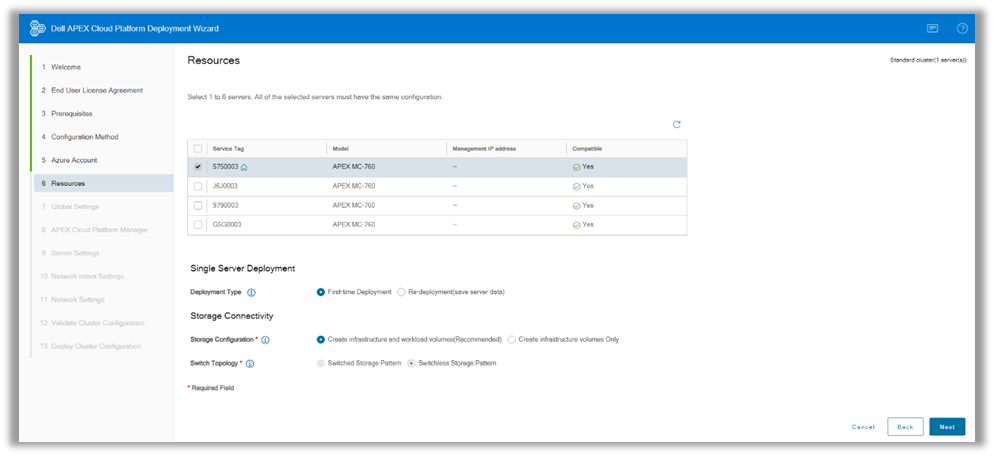 Figure 8. Day 1 node compatibility check
Figure 8. Day 1 node compatibility check
All the processes and technologies described in this blog enable IT administrators to keep the lights of their Dell APEX Cloud Platform for Microsoft Azure platform on by facilitating systems’ monitoring and troubleshooting.
You can find more information on Dell APEX Cloud Platform for Microsoft Azure on Dell InfoHub.
Resources
We have tons of great content to help you deep-dive into Dell APEX Cloud Platform for Microsoft Azure powered by Dell APEX Cloud Platform Foundation Software.
- InfoHub (White Papers, Blogs, Interactive Journey, and more) – https://infohub.delltechnologies.com/t/cloud-platforms/
- YouTube playlist with educational and demo videos – https://www.youtube.com/playlist?list=PL2nlzNk2-VMEkNM7E8m0ia_lLHWlOuT5h
- Main product page with spec sheets, solution briefs, infographics, and other great collateral – https://www.dell.com/azure
- Dell Support site with administrator guides – https://www.dell.com/support/home/en/product-support/product/apex-cloud-pf-ms-azure/docs
And as always, please reach out to your Dell account team if you would like to have more in-depth discussions about the Dell APEX Cloud Platforms family. If you don’t currently have a Dell contact, we’re here to help on our corporate website.
Author: Inigo Olcoz, Senior Principal Engineer Technologist, Dell HCI Technical Marketing
Twitter: @VirtualOlcoz


